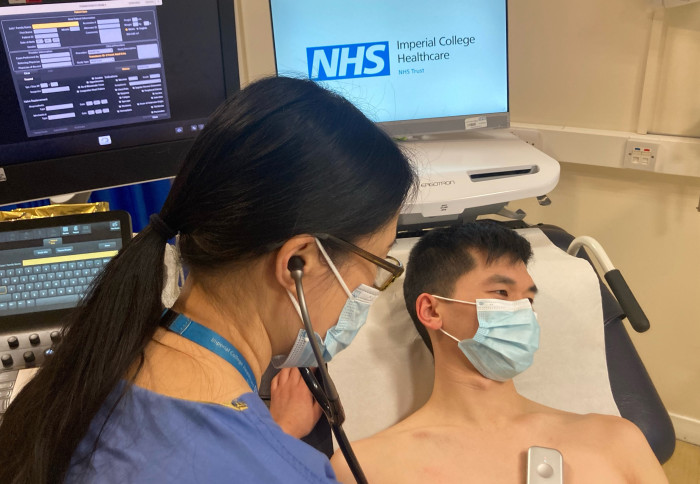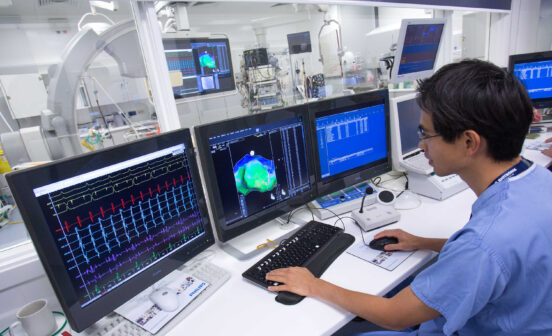Economic ImpactService Delivery ChangesSystems Influence AI stethoscope to diagnose heart failure earlier

Heart failure is increasingly common, affecting 2% of the UK population and consuming 4% of NHS budget. It carries a higher risk of death than most cancers and in 80% of patients it is only diagnosed when patients require emergency care because the complex symptoms overlap with other common conditions, meaning these patients have low survival rates. As well as improving survival and quality of life, NIHR Imperial BRC funded health economic research has demonstrated that every patient diagnosed with heart failure before emergency care saves £2,500.
In the first sector-wide use of AI in primary care, the TRICORDER programme has deployed an ‘AI stethoscope’ to 100 GP practices across a population of 2.5m patients, to assist doctors in their evaluation of heart failure in the community, before patients become seriously unwell. Work to develop and support the AI stethoscope has been underpinned by both direct NIHR funding and infrastructure support through the NIHR Imperial BRC to recruit and care for patients on the trial, as well as ensure patient involvement in the design of the study itself. The multidisciplinary team also developed a first-ever NHS clinical guideline for using AI results to inform prescription of medication.
AI stethoscope helping diagnose heart failure is rolled out to 100 GP clinics





